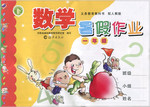题目内容
【题目】根据短文内容的理解,选择正确答案。 Papa, as a son of a dirt-poor farmer, left school early and went to work in a factory, for education was for the rich then. So, the world became his school. With great interest, he read everything he could lay his hands on, listened to the town elders and learned about the world beyond his tiny hometown. "There's so much to learn," he'd say. "Though we're born stupid, only the stupid remain that way. "He was determined that none of his children would be denied (拒绝) an education.
Thus, Papa insisted that we learn at least one new thing each day. Though, as children, we thought this was crazy, it would never have occurred to us to deny Papa a request. And dinner time seemed perfect for sharing what we had learned. We would talk about the news of the day; no matter how insignificant, it was never taken lightly. Papa would listen carefully and was ready with some comment, always to the point.
Then came the moment—the time to share the day's new learning.
Papa, at the head of the table, would push back his chair and pour a glass of red wine, ready to listen.
"Felice," he'd say, "tell me what you learned today."
"I learned that the population of Nepal is ...."
Silence.
Papa was thinking about what was said, as if the salvation of the world would depend upon it. "The population of Nepal. Hmm. Well……" he'd say. "Get the map; let's see where Nepal is." And the whole family went on a search for Nepal.
This same experience was repeated until each family member had a turn. Dinner ended only after we had a clear understanding of at least half a dozen such facts.
As children, we thought very little about these educational wonders. Our family, however, was growing together, sharing experiences and participating in one another's education. And by looking at us, listening to us, respecting our input, affirming our value, giving us a sense of dignity, Papa was unquestionably our most influential teacher.
Later during my training as a future teacher I studied with some of the most famous educators. They were imparting what Papa had known all along—the value of continual learning. His technique has served me well all my life. Not a single day has been wasted, though I can never tell when knowing the population of Nepal might prove useful.
(1)What do we know from the first paragraph?
A.The author's father was born in a worker's family.
B.Those born stupid could not change their life.
C.The town elders wanted to learn about the world.
D.The poor could hardly afford school education.
(2)The underlined word "it" in the second paragraph refers to "________".
A.one new thing
B.a request
C.the news
D.some comment
(3)It can be learned from the passage that the author ________.
A.enjoyed talking about news
B.knew very well about Nepal
C.felt regret about those wasted days
D.appreciated his father's educational technique
【答案】
(1)D
(2)C
(3)D
【解析】考查记叙文阅读。本文是一篇记叙文, 通过对父亲的教育方式的描写, 表达了作者对于父亲的敬爱。
(1) 细节理解题。根据第一段中Papa, as a son of a dirt-poor farmer, left school early and went to work in a factory, for education was for the rich then.可知, 爸爸生长在一个贫穷的家庭, 根本付不起学费, 故选D。
(2) 推理判断题。这里的it代指的是前面提到的news, 代指前面的主语。故选C。
(3) 细节理解题。根据最后一段前两句Later during my training as a future teacher studied with some of the most famous educators. They were imparting what Papa had known all along...可知, 在我成为未来教师的实习中, 我和一些很有名的教育者一同学习, 他们传授着父亲所知道的——持续教育的意义。故选D。

 暑假作业海燕出版社系列答案
暑假作业海燕出版社系列答案